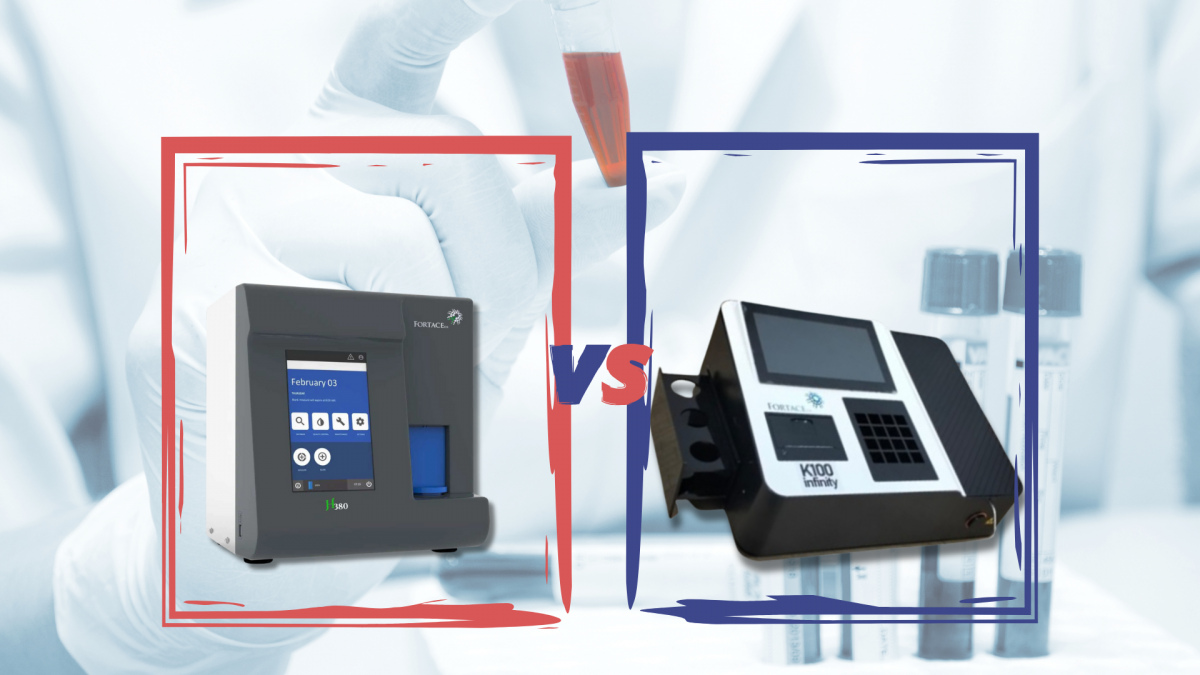Laboratory tests are a cornerstone of modern medicine, aiding physicians in diagnosing diseases, monitoring patient conditions, and evaluating the effectiveness of treatments. Two common types of tests performed in laboratories are hematology tests and clinical chemistry tests. While both contribute to medical diagnostics, they differ in the aspects they analyze, the equipment used, and the results they provide.
Hematology Tests
Hematology focuses on the study of blood, blood-forming organs, and related diseases. These tests analyze the cellular components of blood, such as:
- Red blood cells (erythrocytes): Assess anemia or polycythemia.
- White blood cells (leukocytes): Indicate infections or immune disorders.
- Platelets: Monitor blood clotting capability.
- Hemoglobin and hematocrit: Evaluate oxygen-carrying capacity.
Key Equipment for Hematology Tests
The Fortacedx H380 3-Part Diff Hematology Analyzer is an advanced device designed for complete blood count (CBC) analysis, including a three-part differentiation of white blood cells. This automated analyzer offers fast and accurate results, making it an invaluable tool for laboratories aiming for efficiency and precision.
Clinical Chemistry Tests
Clinical chemistry analyzes chemical substances in body fluids, such as serum, plasma, or urine, to assess organ function and metabolism. Common parameters include:
- Liver function: Enzymes such as SGOT, SGPT, and bilirubin levels.
- Kidney function: Urea, creatinine, and uric acid.
- Lipid profile: Total cholesterol, LDL, HDL, and triglycerides.
- Blood glucose: Fasting glucose and HbA1c.
Key Equipment for Clinical Chemistry Tests
The Fortacedx K100 Infinity Semi-Automated Chemistry Analyzer is a semi-automated device designed to precisely measure various blood chemistry parameters. Its customizable analysis settings make it ideal for mid-sized laboratories requiring flexible and reliable testing capabilities.
Key Differences
| Aspect | Hematology | Clinical Chemistry |
|---|---|---|
| Analyzed Sample | Cellular components of blood | Body fluids (serum, plasma, urine) |
| Purpose | Analyze blood as a tissue | Evaluate organ function/metabolism |
| Equipment Used | Fortacedx H380 Hematology Analyzer | Fortacedx K100 Chemistry Analyzer |
| Example Results | Complete blood count, WBC differentiation | Blood glucose, creatinine, cholesterol |
Conclusion
Hematology and clinical chemistry tests complement each other by providing comprehensive insights into a patient’s health. While hematology tests analyze blood at the cellular level, clinical chemistry evaluates organ function and metabolic status through body fluids. With cutting-edge devices such as the Fortacedx H380 3-Part Diff Hematology Analyzer and the Fortacedx K100 Infinity Semi-Automated Chemistry Analyzer, laboratories can enhance their diagnostic capabilities by delivering faster and more accurate results.
References
- Bain, B. J., Bates, I., & Laffan, M. A. (2017). Dacie and Lewis Practical Haematology. Elsevier.
- Bishop, M. L., Fody, E. P., & Schoeff, L. E. (2018). Clinical Chemistry: Principles, Techniques, and Correlations. Wolters Kluwer.
- Product details: Fortacedx H380 3-Part Diff Hematology Analyzer.
- Product details: Fortacedx K100 Infinity Semi-Automated Chemistry Analyzer.



